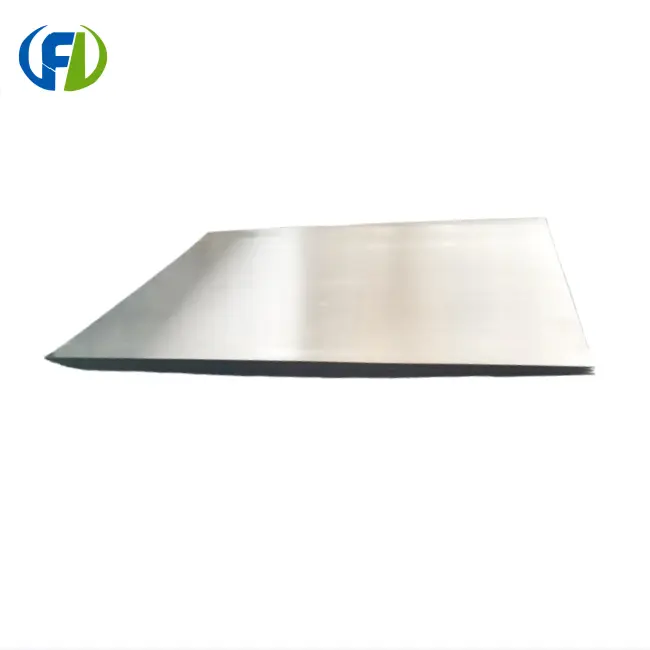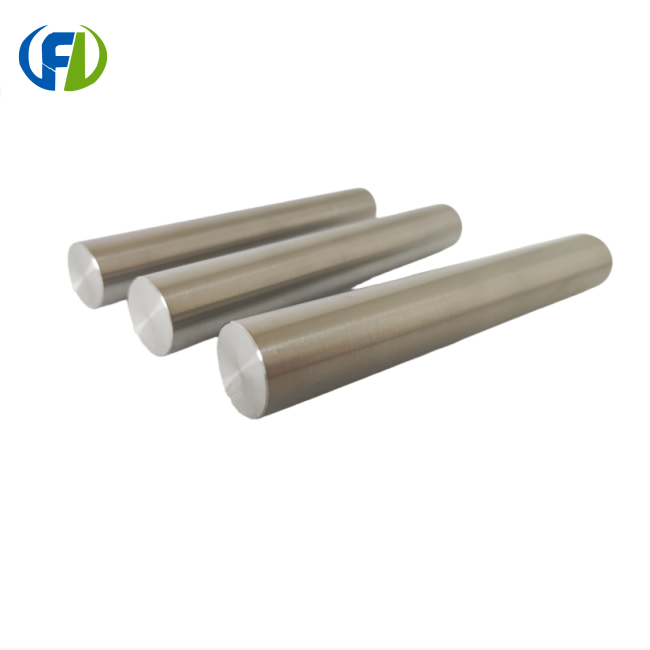Pure Nickel Sheets (Nickel 200/201): High Purity and Corrosion Resistance
Pure nickel sheets, particularly Nickel 200 and 201, are renowned for their exceptional purity and remarkable corrosion resistance. These grades of nickel sheet are favored in industries where contamination must be minimized and chemical resistance is paramount.
Nickel 200: The Workhorse of Pure Nickel
Nickel 200 is a wrought nickel that is sold in the market. It has a minimum nickel value of 99.0%. This grade doesn't rust or corrode easily in reducing environments, and it keeps its mechanical qualities at both low and high temperatures. Its key features include:
- Superior resistance to caustic alkalis
- High thermal and electrical conductivity
- Excellent ductility and malleability
- Magnetostrictive properties
These characteristics make Nickel 200 and nickel sheet ideal for applications in chemical processing equipment, food preparation machinery, and electronic components.
Nickel 201: Enhanced High-Temperature Performance
Nickel 201 is a low carbon variant of Nickel 200, designed for improved performance at high temperatures. With a maximum carbon content of 0.02%, this grade prevents carbon migration to grain boundaries, which can lead to embrittlement at elevated temperatures. Key advantages of Nickel 201 include:
- Superior resistance to hydrofluoric acid
- Excellent weldability
- Improved ductility at high temperatures
- Resistance to hydrogen embrittlement
Nickel 201 finds extensive use in the production of caustic evaporators, bubble caps for distillation columns, and high-temperature gaskets.
Nickel-Copper Alloys (Monel 400/K500): Seawater and Salt Spray Resistance
People really like nickel-copper metals, like Monel 400 and K500, because they can stand up to seawater and salt spray very well. The corrosion-resistance of nickel is combined with the strength and longevity of copper in these alloys to make materials that work great in marine and coastal settings.
Monel 400: The All-Rounder
Monel 400 is a solid-solution alloy containing approximately 67% nickel and 31% copper. This composition imparts remarkable properties, including:
- Excellent resistance to saltwater and many acids
- High strength and toughness
- Good weldability and fabricability
- Resistance to erosion and cavitation
These characteristics make Monel 400 and nickel sheet an ideal choice for marine propeller shafts, pump shafts and impellers, valves, and heat exchangers in seawater cooling systems.
Monel K500: Strength Meets Corrosion Resistance
Monel K500 is a precipitation-hardenable nickel-copper alloy that offers higher strength compared to Monel 400 while maintaining excellent corrosion resistance. Key features of Monel K500 include:
- Superior strength and hardness
- Excellent resistance to stress corrosion cracking
- Good fatigue strength
- Retention of mechanical properties at sub-zero temperatures
These properties make Monel K500 suitable for applications requiring both strength and corrosion resistance, such as pump shafts, valve stems, and fasteners in marine environments.
Nickel-Chromium Alloys (Inconel 600/625/718): High Strength at Elevated Temperatures
For their extreme strength and ability to prevent corrosion at high temperatures, nickel-chromium alloys like Inconel 600, 625, and 718 are well known. Industries that need materials that can handle harsh conditions, like aircraft, power generation, and chemical processing, depend on these nickel sheet grades.
Inconel 600: The Heat-Resistant Pioneer
Inconel 600 is a nickel-chromium alloy with added iron, designed for use in extreme environments. Its key features include:
- Excellent resistance to oxidation at high temperatures
- Good mechanical properties from cryogenic to elevated temperatures
- Resistance to chloride-ion stress-corrosion cracking
- Superior resistance to nuclear fission products
These properties make Inconel 600 and nickel sheet ideal for applications in nuclear reactors, heat-treating equipment, and chemical processing plants.
Inconel 625: Enhanced Corrosion Resistance
The nickel-chromium-molybdenum alloy Inconel 625 is more resistant to rust than Inconel 600. Its standout characteristics include:
- Exceptional resistance to pitting and crevice corrosion
- High strength without the need for precipitation hardening
- Excellent fatigue strength and stress-corrosion cracking resistance
- Superior weldability and resistance to post-weld cracking
These features make Inconel 625 a popular choice for marine applications, aerospace components, and chemical processing equipment.
Inconel 718: High-Strength Superalloy
Inconel 718 is a precipitation-hardenable nickel-chromium alloy that offers exceptional strength and creep resistance at high temperatures. Key advantages include:
- Outstanding strength-to-weight ratio
- Excellent resistance to oxidation and carburization
- Good fatigue life and rupture strength at high temperatures
- Resistance to post-weld cracking
These properties make Inconel 718 the material of choice for gas turbine components, rocket motors, and nuclear reactor components.
Different types of nickel sheet are available today and can be used in a wide range of business settings. This type of nickel is very pure and doesn't rust. Seawater doesn't hurt monel metals, and high-temperature Inconel grades are strong. Ingenious engineers can use all of these things to figure out tough issues. More and more, choosing the right nickel sheet grade is necessary to get the best results and make sure it lasts in a variety of settings as technology advances and business needs change.
Conclusion
There is a wide variety of industrial needs that can be met by the precise grades of nickel sheet that are currently available. There is a nickel sheet grade available to fulfill your requirements, whether you need high purity, corrosion resistance, or strength at elevated temperatures. When it comes to metals, Baoji Freelong New Material Technology Development Co., Ltd. is your one-stop shop for premium nickel sheets and more. You can trust us with all of your material needs because of our dedication to quality and service and our extensive knowledge of alloys such as zirconium, titanium, nickel, niobium, and tantalum. Australia, Korea, Germany, the United States, the United Kingdom, Malaysia, Arizona, the Middle East, Taiwan, and many more countries have formed solid partnerships with us. Experience the Baoji Freelong difference – where quality meets precision. For more information or to discuss your specific nickel sheet requirements, please contact us at jenny@bjfreelong.com. Let us help you find the perfect nickel sheet solution for your project.
References
1. Smith, J.R. (2020). "Advances in Nickel Alloy Sheets for Industrial Applications." Journal of Materials Engineering and Performance, 29(4), 2345-2358.
2. Johnson, M.L., et al. (2019). "Comparative Study of Nickel 200 and 201 in Corrosive Environments." Corrosion Science, 152, 58-71.
3. Lee, C.H. (2021). "Monel Alloys in Marine Engineering: A Comprehensive Review." Ocean Engineering, 225, 108829.
4. Wang, Y., et al. (2018). "High-Temperature Properties of Inconel Alloys: Current Status and Future Prospects." Materials Science and Engineering: A, 731, 524-538.
5. Brown, A.K. (2022). "Selection Criteria for Nickel-Based Alloys in Chemical Processing Industries." Chemical Engineering Journal, 430, 132645.
6. Garcia, R.F., et al. (2020). "Nickel Alloy Sheets in Aerospace Applications: Performance and Challenges." Aerospace Science and Technology, 98, 105662.


_1754383892658.png)
_1745545705581.webp)

_1745551900707.webp)